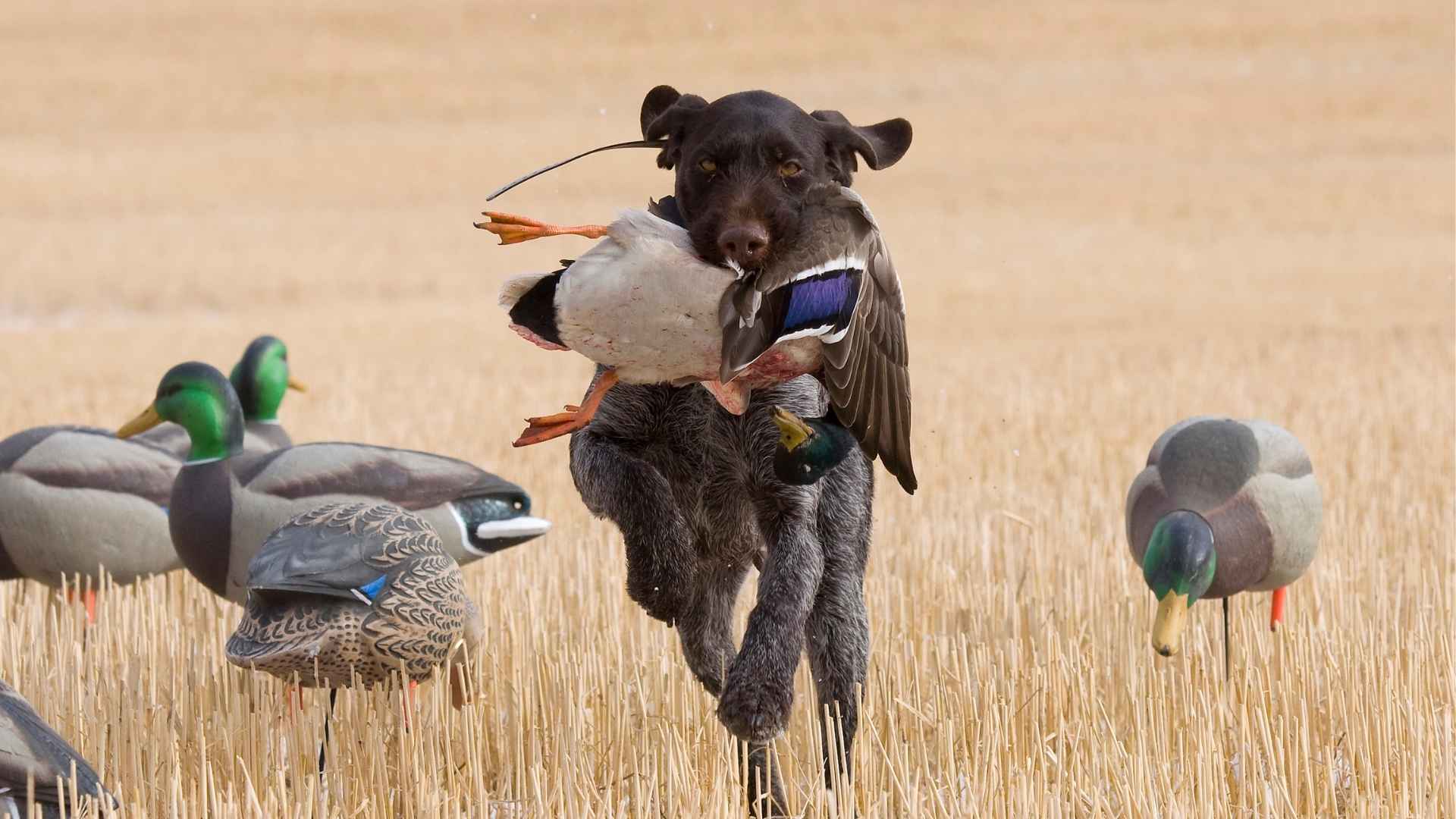Waterfowl hunting isn’t just about skill—it’s about having the right four-legged partner. A great hunting dog isn’t just a retriever; it’s a swimmer, a tracker, and a tireless worker.
Some dogs have an uncanny ability to brave cold waters, locate downed ducks, and bring them back with finesse. But not every pup is cut out for the job.
The best hunting companions combine endurance, intelligence, and a strong nose. Without those traits, you might end up retrieving your ducks.
Ever wondered why some dogs love water while others avoid it like a bad bath day? Their instincts run deeper than you think.
If you’re looking for the perfect hunting partner, these top dogs have what it takes to make every hunt a success.
9 Best Dog Breeds for Duck Hunting
1. Chesapeake Bay Retriever
Built like a tank, this duck dog isn’t just tough—it thrives in harsh conditions. Bred to retrieve waterfowl in the icy Chesapeake Bay, it has a dense, curly-coated retriever body that shrugs off freezing water.
Unlike other retriever breeds, this one’s fiercely independent. It’s smart but stubborn—think “I got this” energy. Training requires patience, but once locked in, it follows hand signals like a pro.
AKC mentions that its strong desire to work makes it an endurance machine. It powers through waves, wind, and long hunts without slowing down. If you want a good duck dog, this one brings back more birds than you can shoot.
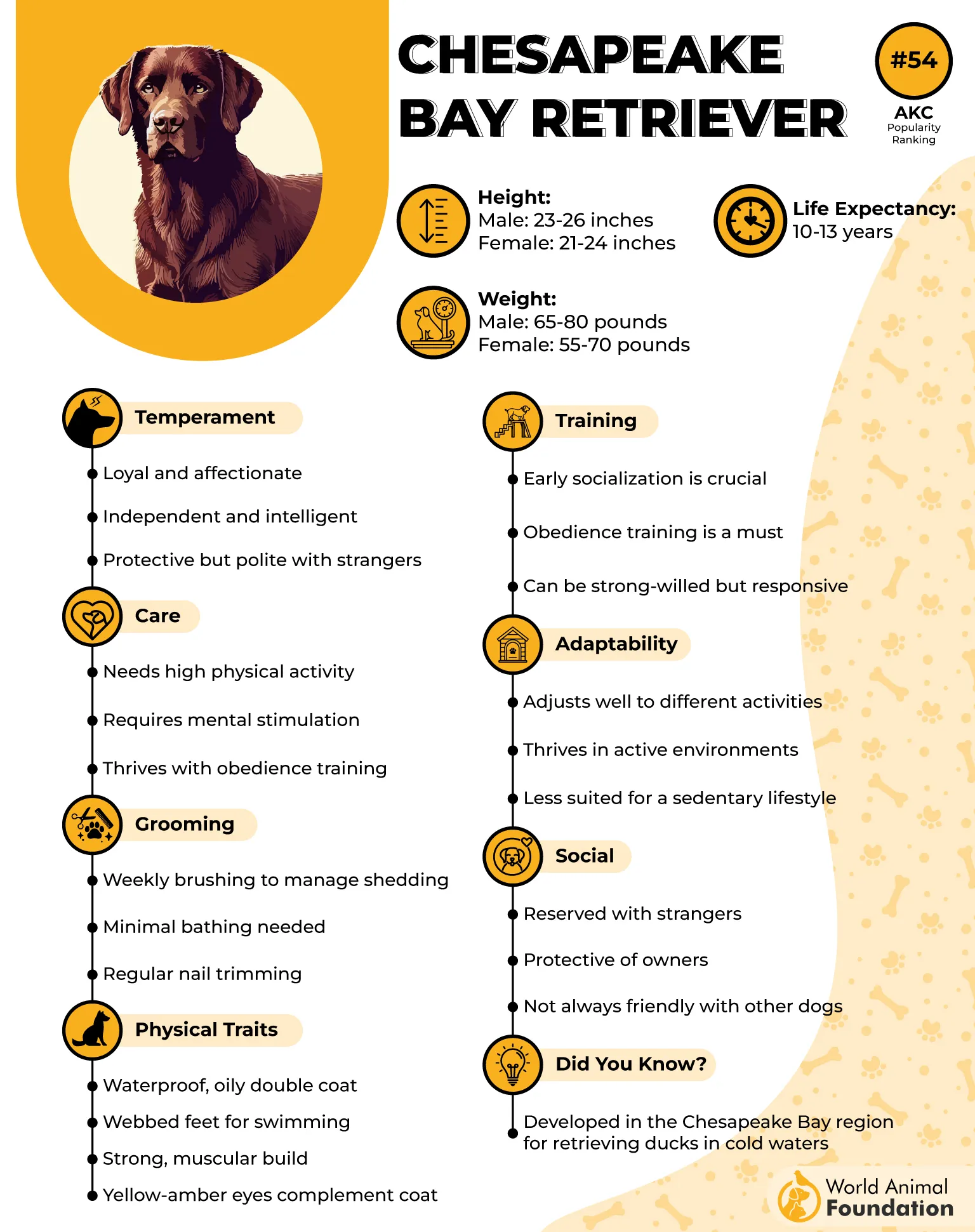
Not just a hunting dog, it’s also a loyal companion. Protective and bold, it won’t hesitate to guard its home or its humans. A great dog for those who appreciate a challenge.
High-energy? Absolutely. If it’s not retrieving ducks, it needs intense exercise. Think field drills, long swims, or, at the very least, something more exciting than a fenced yard.
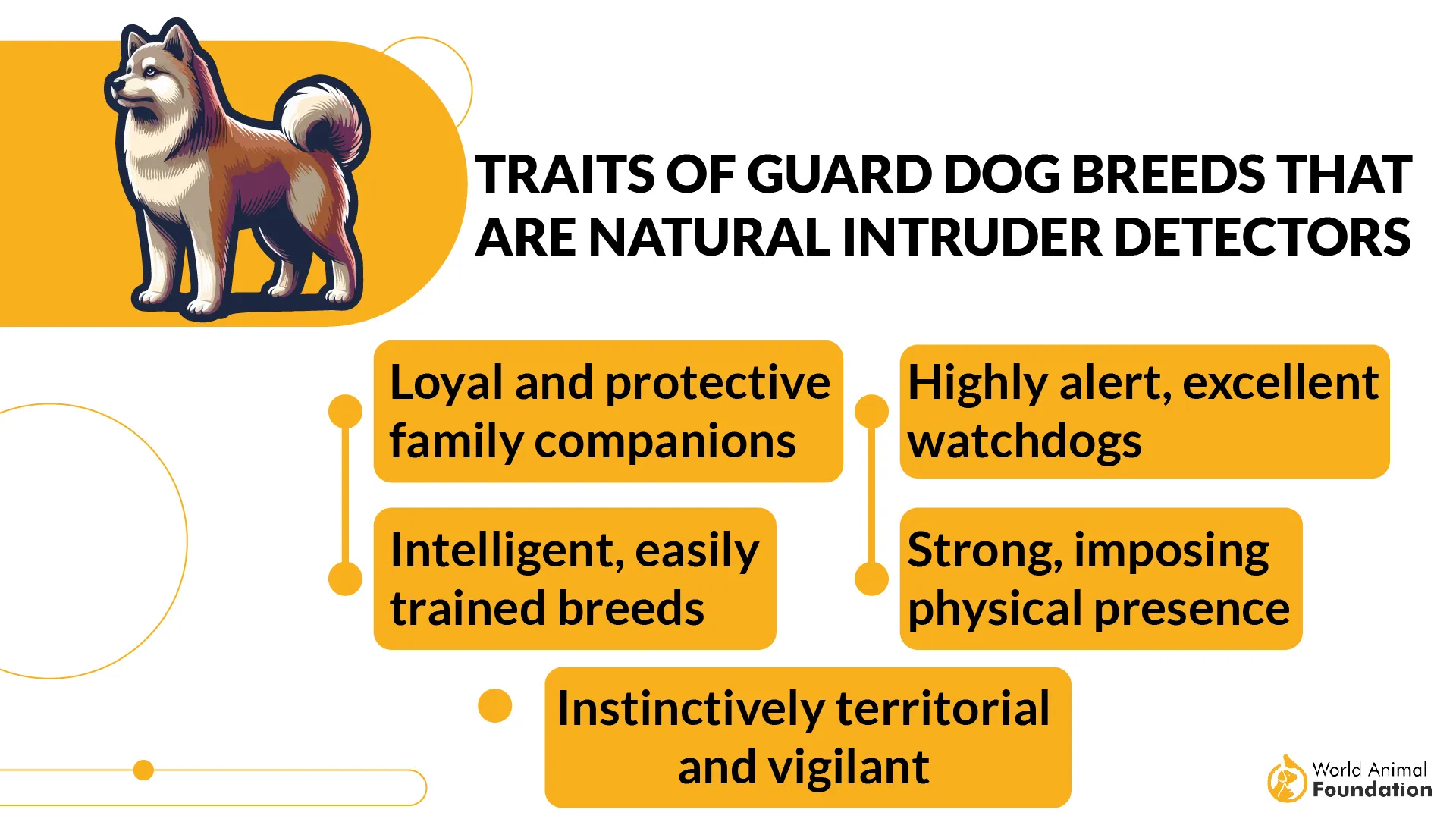
Health-wise, watch for hip issues and eye conditions—common among big dogs. Regular vet checks keep this powerhouse in peak form.
Fun fact: The Chesapeake Bay Retriever is Maryland’s state dog, a title earned through pure grit and waterfowl mastery.
2. Nova Scotia Duck Tolling Retriever
Don’t let its compact size fool you—this small retriever is a duck-hunting mastermind. Originally bred in Nova Scotia, it’s famous for “tolling,” or luring ducks in with playful antics before the hunt begins.
This upland bird retriever is all brains and energy. A quick learner, he picks up complex commands with ease. But don’t slack on training—its intelligence comes with a mischievous streak.
Built for speed and endurance, it’s one of the hunting dogs for long days in the field. It has a strong desire to retrieve, whether it’s downed birds or the tennis ball you just threw.
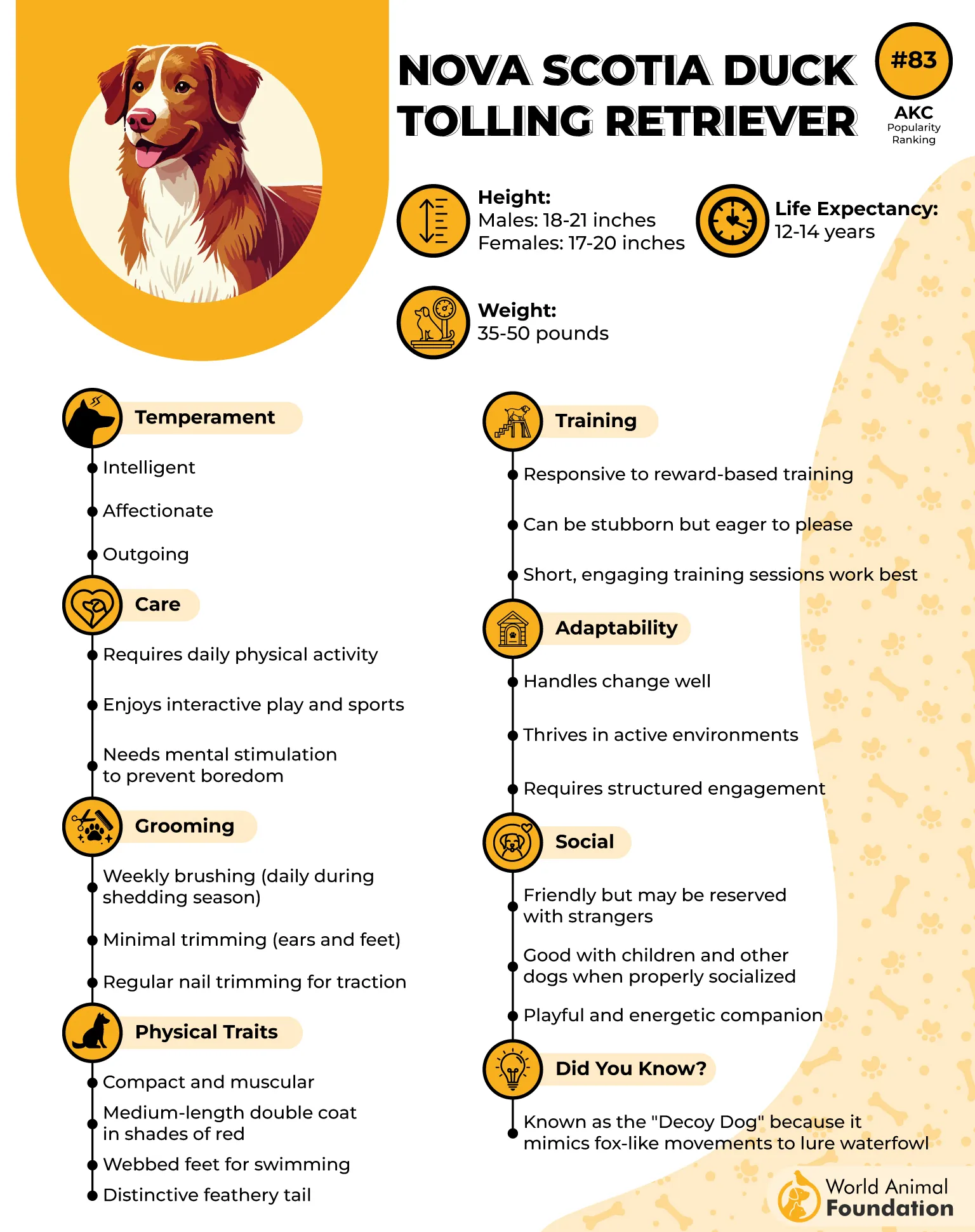
A social butterfly, it thrives on attention. If left alone for too long, it might entertain itself in ways you won’t appreciate. (Say goodbye to your shoes.)
Health concerns? Keep an eye on hip dysplasia and autoimmune disorders. Regular check-ups and a proper diet keep this sporting breed in top shape.
Despite its hunting chops, it’s also an excellent companion for families—friendly, affectionate, and always up for an adventure.
Fun fact: It’s the smallest of the retriever breeds, but don’t underestimate it—it can keep up with the big dogs in the water.
3. Flat-Coated Retriever
Meet the happy dog of the hunting world. This bird dog doesn’t just hunt—it has fun doing it. Originally bred as a dual-purpose gun dog, it excels in both hunting ducks and upland game.
Unlike some other retriever breeds, the Flat-Coat stays puppy-like well into adulthood. Translation? Tons of enthusiasm, lots of tail-wagging, and an eagerness to work that never fades.
Training is a breeze. This biddable dog thrives on praise and picks up commands quickly. But its playful nature means consistency is key—too much slack, and it’ll turn training into a game.
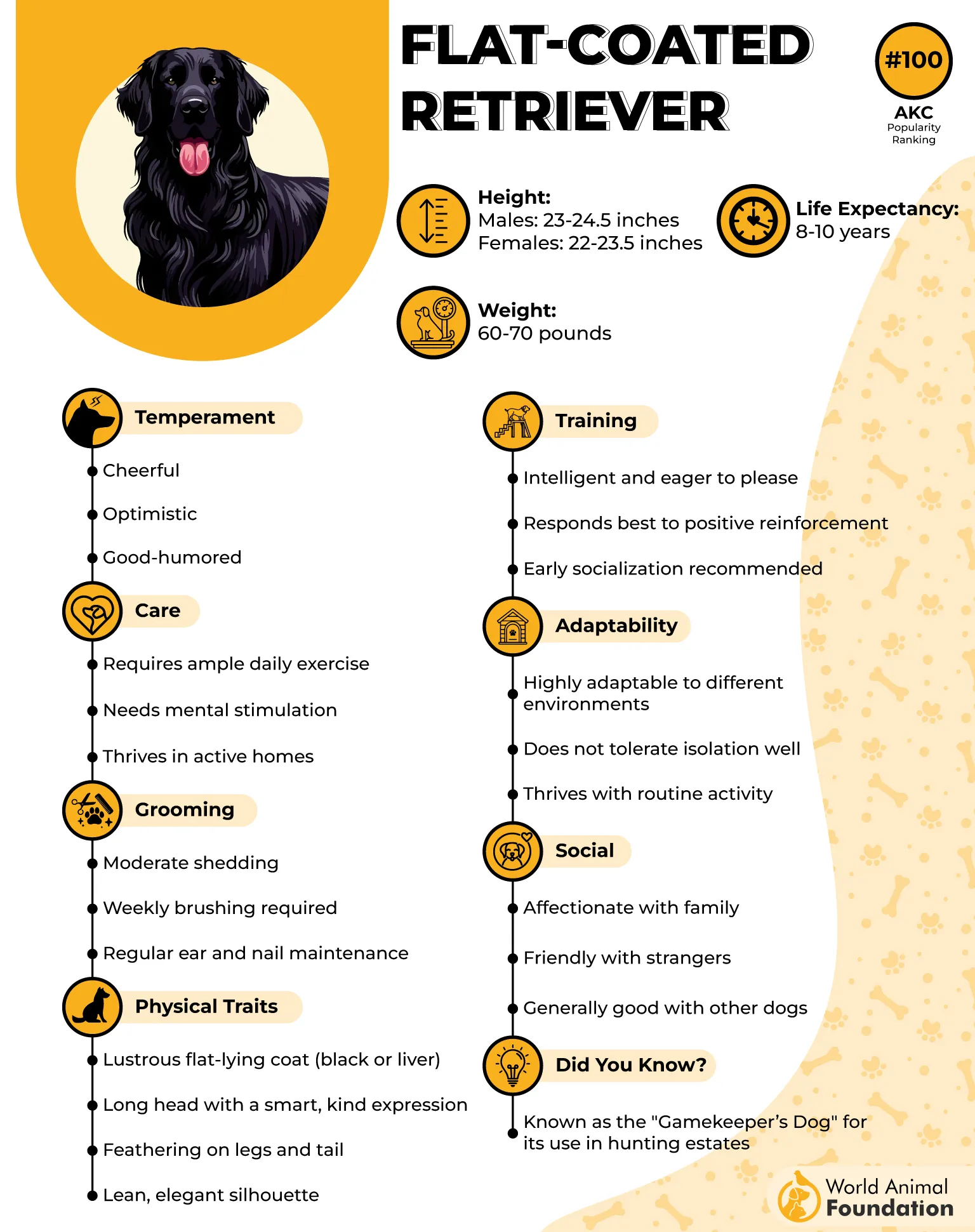
Purina notes that with an athletic build and a love for water, it’s a natural at retrieving ducks. Its soft mouth ensures your downed birds come back intact, not looking like chew toys.
This popular breed is generally healthy but prone to cancer, so regular vet check-ups are a must. Keep it active and well-fed, and it’ll hunt (and play) for years.
Bonus? It’s a great family pet. Its friendly disposition makes it just as good at snuggling as it is at retrieving.
Fun fact: Nicknamed the “Peter Pan” of retrievers, this sporting breed never seems to grow up.
4. German Wirehaired Pointer
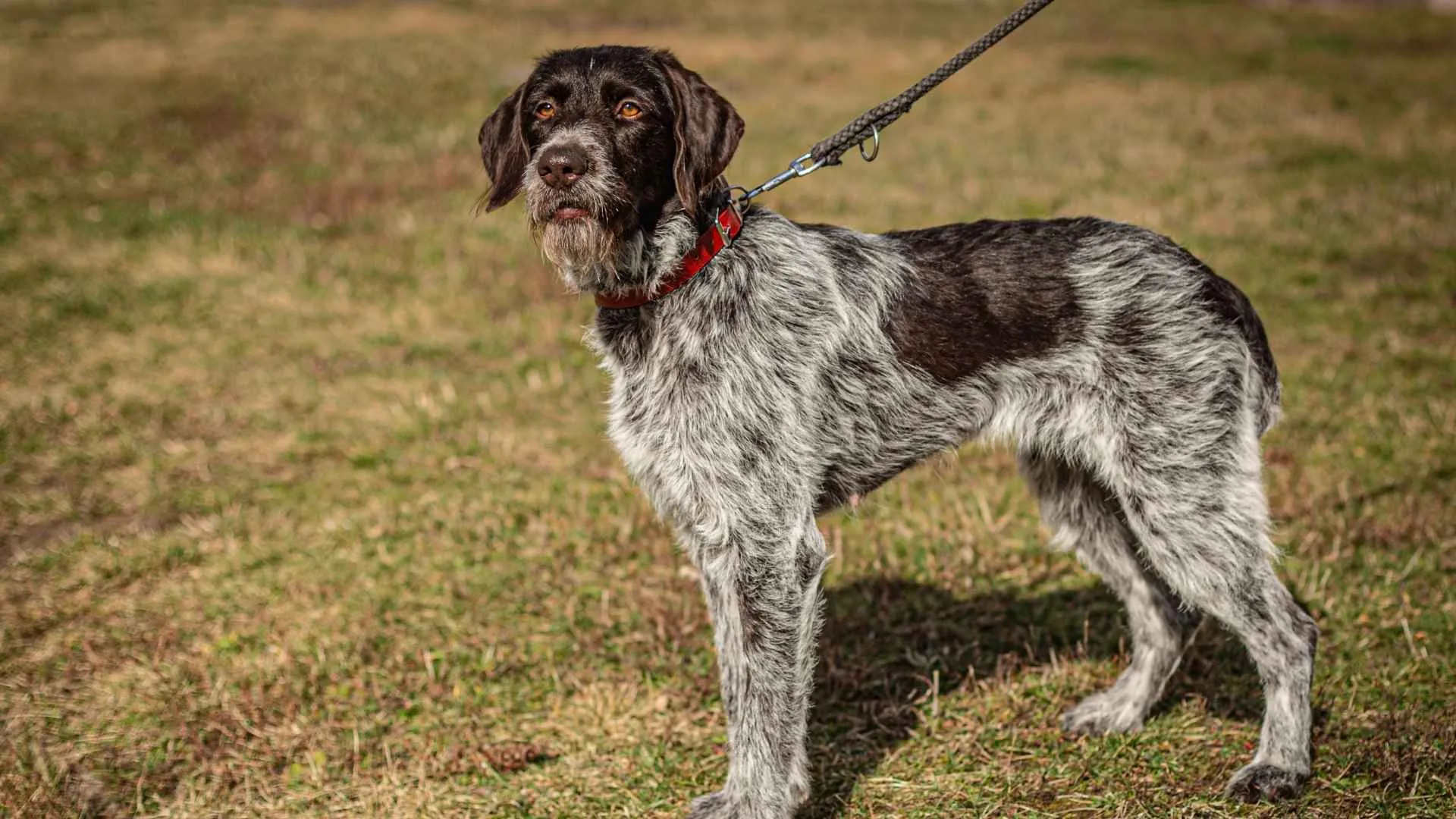
This versatile breed is like the Swiss Army knife of hunting dogs. Need a tracker? A retriever? A guard dog? It does it all—and looks rugged doing it.
That scruffy, wiry coat isn’t just for style. It repels water and protects against thorns, making this gun dog unstoppable in harsh conditions. Whether it’s hunting ducks or chasing upland game, it’s always game.
Training? It’s sharp as a tack but strong-willed. Early training and firm handling are a must. This isn’t a “tell once and forget” kind of dog—it needs consistency and challenge.
It’s got endurance for days, built for long hunts and retrieving ducks in cold waters. Without enough work, it turns into a four-legged wrecking ball of energy.
Loyal? Beyond words. This loyal companion bonds hard with its owner and won’t hesitate to guard its home. Socialization is key to preventing overprotectiveness.
Health-wise, watch out for hip dysplasia and eye issues. Otherwise, this field dog stud book regular is built tough.
Fun fact: This breed was designed to be the ultimate duck hunting dog, bred in Germany to handle every aspect of a hunt.
5. Labrador Retriever
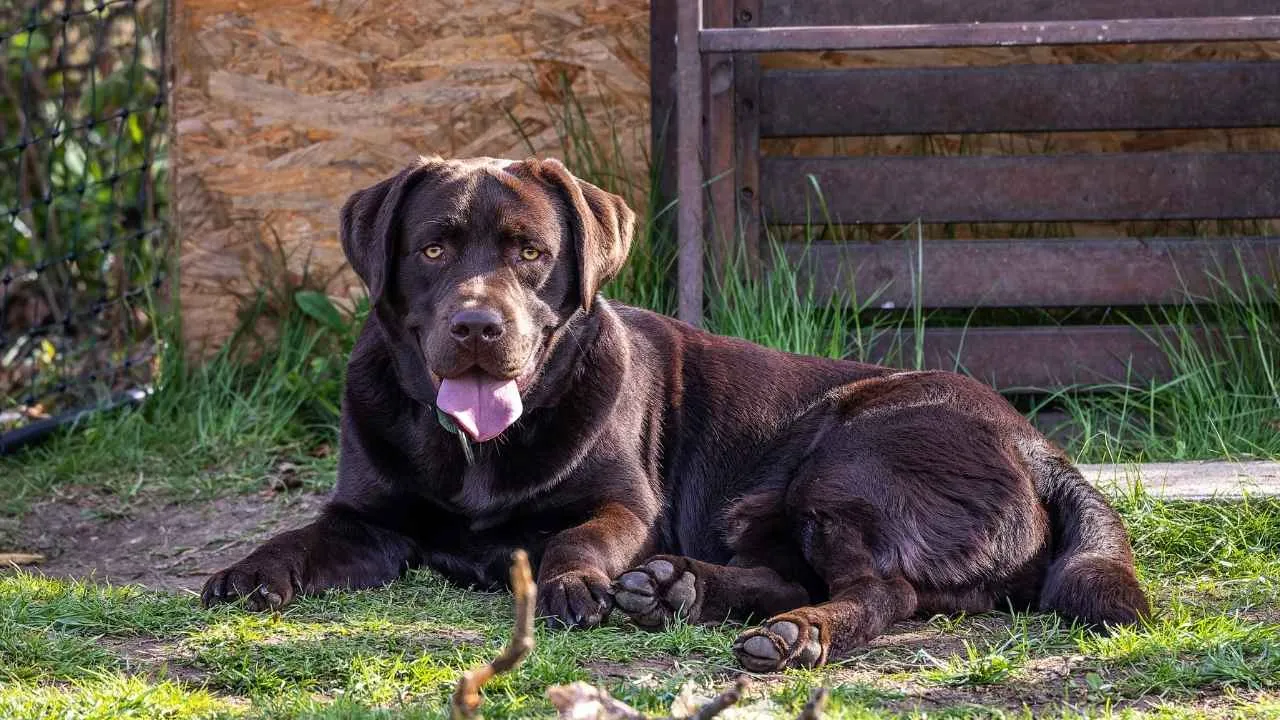
The GOAT of duck dogs—there’s a reason this popular breed dominates the hunting world. Labs are natural ability machines with an instinct to retrieve waterfowl like they were born for it (because they were).
Biddable? Check. Obedient? Check. Eager to please? Double check. Labs are quick learners and respond to training like they’ve already read the manual.
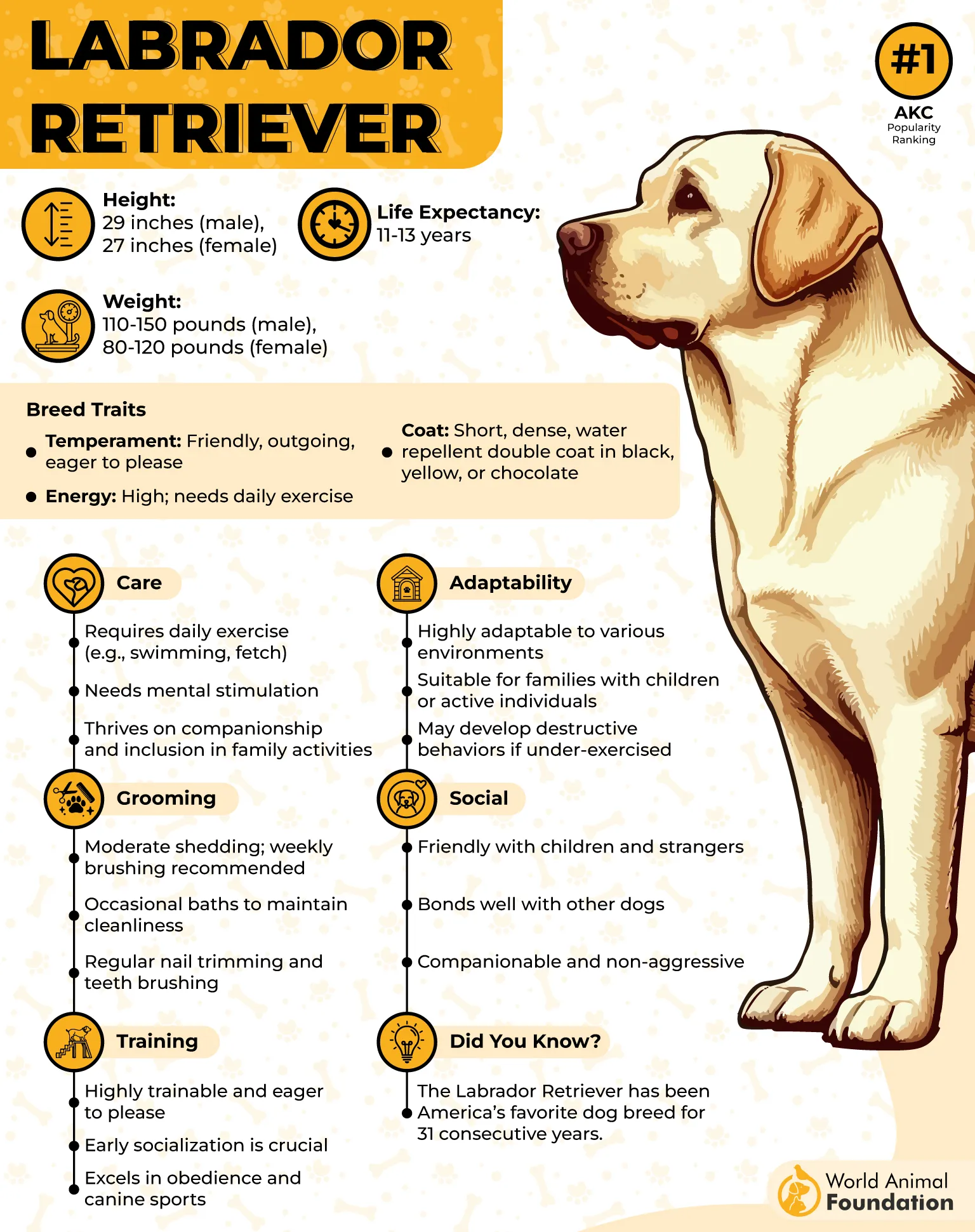
Petplan admires that their athletic build makes them perfect for long swims, while their thick double coat keeps them warm in icy water. It’s like nature gave them a built-in wetsuit.
Whether it’s hunting ducks, running hunt tests, or playing fetch, Labs never run out of energy. Daily exercise is a must unless you enjoy furniture demolition.
Health concerns? Hip and elbow dysplasia, plus the occasional case of “eats everything in sight.” Keep the food stash secure.
A great family pet and an even better hunting buddy, the Lab is the definition of a good duck dog.
Fun fact: Labs aren’t just excellent companions—they also dominate search-and-rescue, therapy work, and even bomb detection.
6. Curly-Coated Retriever
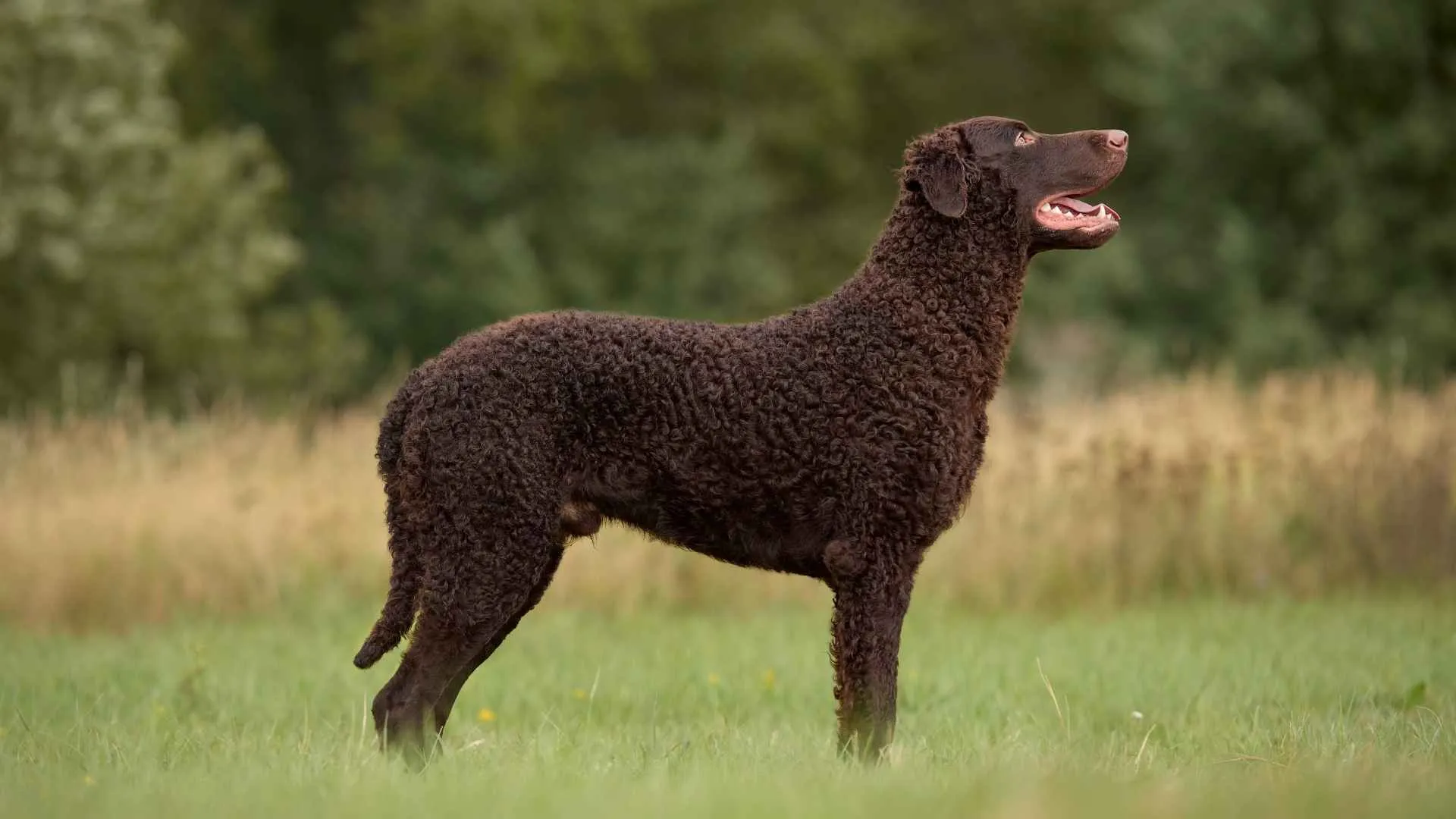
If a retriever breed and a mop had a baby, you’d get this curly-coated retriever. But don’t let the curls fool you—this is one serious duck-hunting dog.
Its tight curls repel water like a dream, making it a pro at retrieving ducks in cold, rough waters. This sporting breed can swim through anything nature throws at it.
Independent? Oh, absolutely. It’s intelligent but not a pushover—training requires patience and a strong game plan. Once trained, though, it follows hand signals like a seasoned pro.
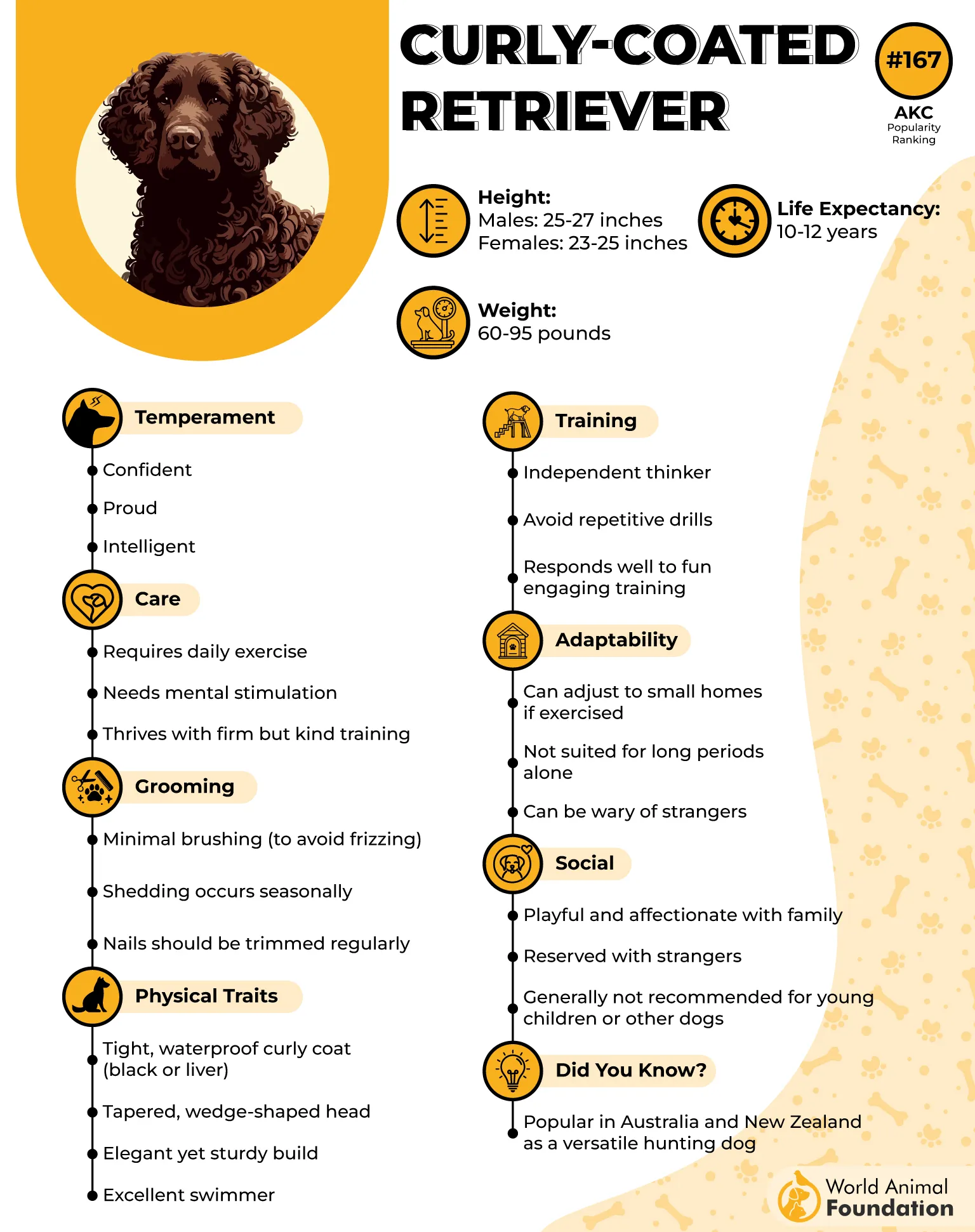
It’s got the stamina for days. Whether you’re chasing downed birds or covering miles of terrain, this dog won’t quit before you do.
Less common than other retriever breeds, but those who know, know. It’s one of the best hunting dogs for hunters who want something unique.
Health concerns? Like many big dogs, it’s prone to hip dysplasia, but overall, this is one tough, low-maintenance retriever.
Fun fact: The curly-coated retriever is one of the oldest retrieving breeds, dating back to the 1700s. Old school, but still elite.
7. German Shorthaired Pointer
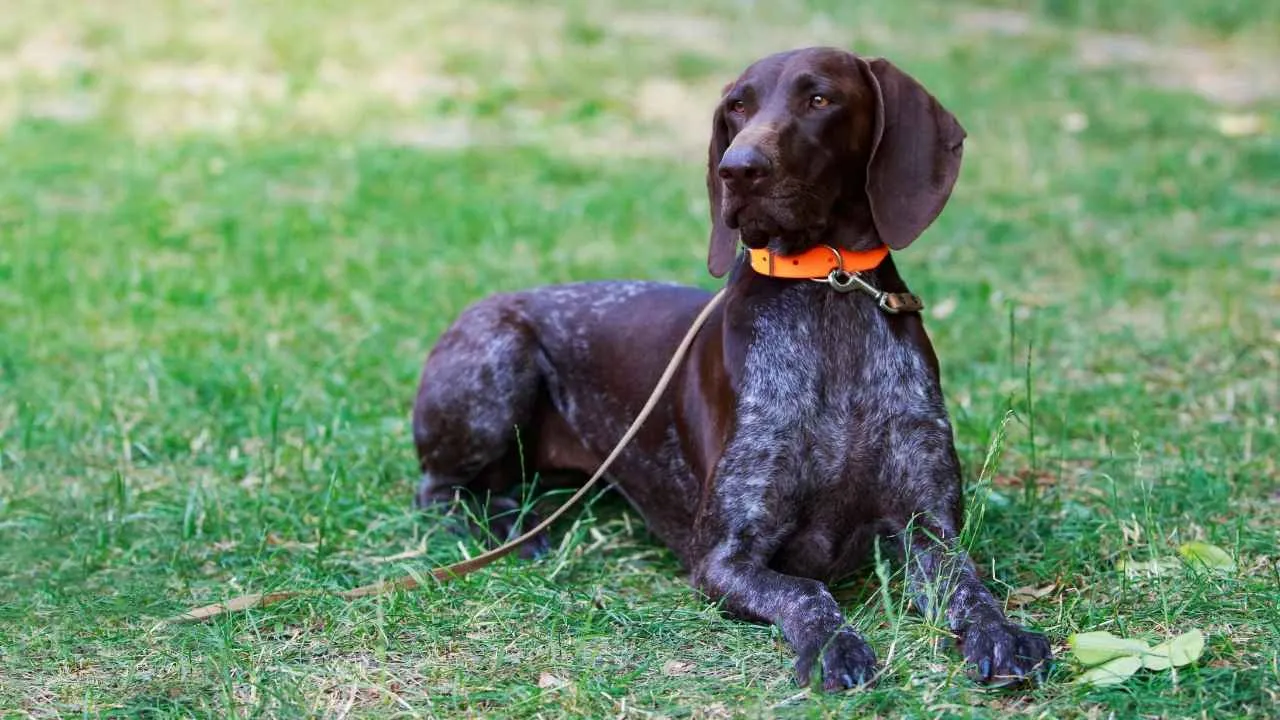
If hunting had an all-star athlete, it’d be this versatile breed. Fast, smart, and packed with energy, the German Shorthaired Pointer (GSP) is built for hunting ducks, upland game, and anything else you point it at.
Its athletic build makes it one of the hunting dogs, sprinting through fields and diving into water like it’s training for the Olympics. If you need a field dog champion, this is it.
Training? It’s sharp and quick to learn, but leave it unchallenged, and it’ll invent its fun (like redecorating your yard with holes). Keep its mind and body busy.
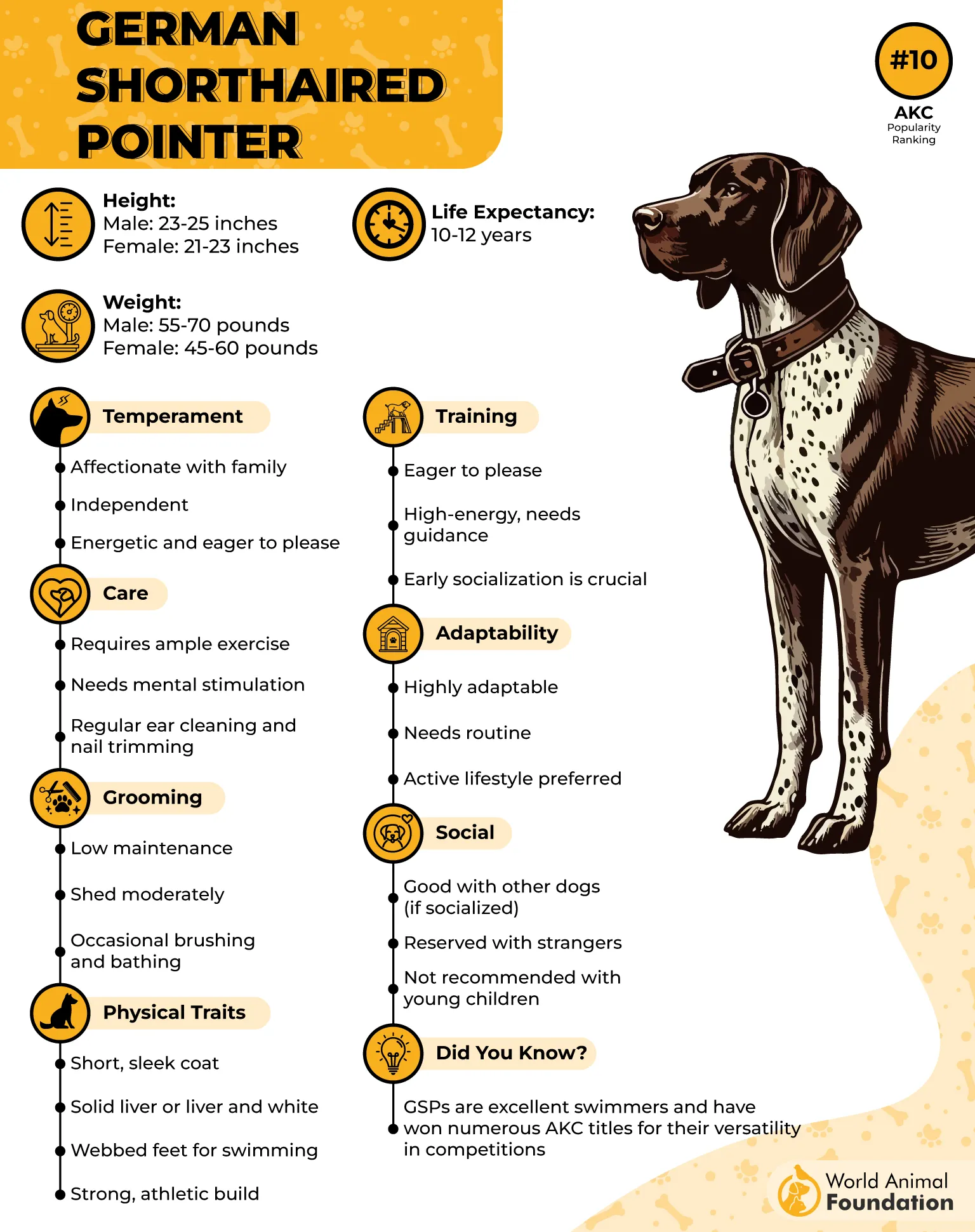
The GSP’s natural ability makes it both a pointer and retriever—no need for backup dogs. It locks onto birds, then seamlessly switches to retrieving ducks like it’s second nature.
PetMD reveals that its short coat dries fast, but it’s not ideal for freezing temps. If you’re hunting in the Arctic, maybe bring a coat (for the dog, not just you).
Common health concerns? Hip issues and bloat, but regular check-ups and a proper diet keep this machine running.
Fun fact: The GSP is a gun dog that can do it all—point, flush, retrieve, and track. It’s like the multitool of hunting dogs.
8. American Water Spaniel
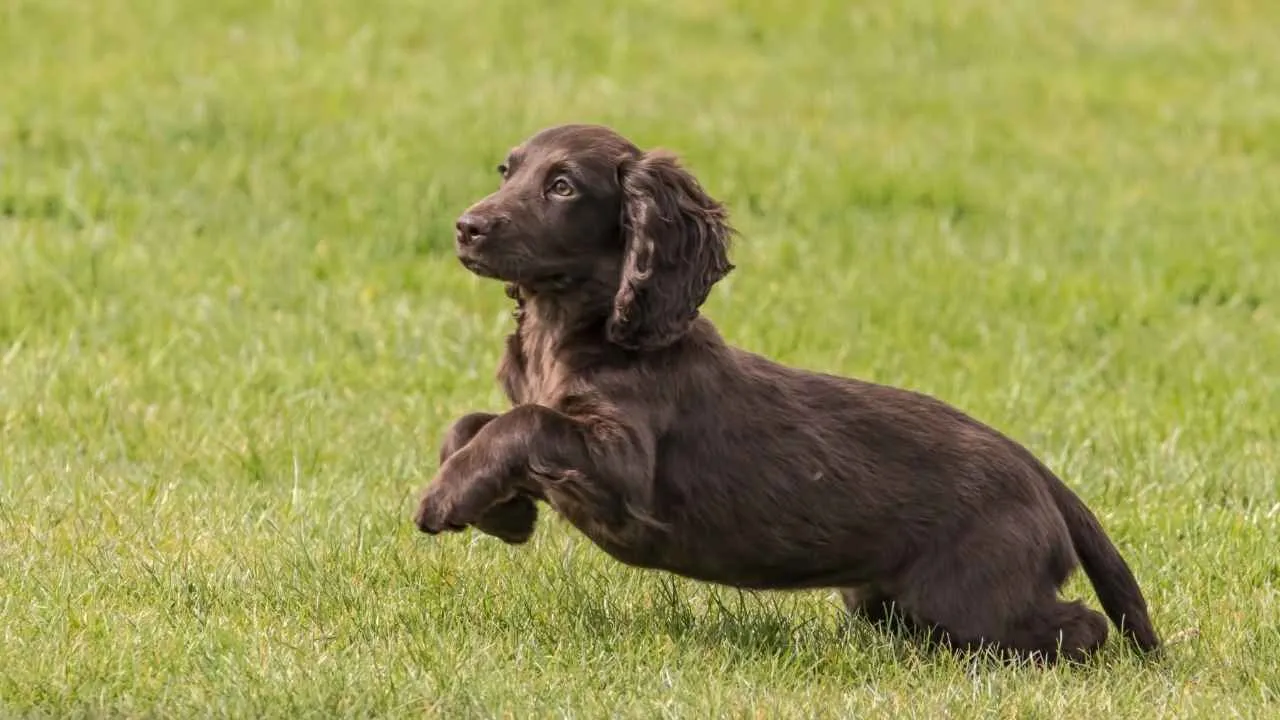
Meet the small retriever with a big personality. This sporting breed was bred for retrieving ducks in the marshes of the Midwest, and it still dominates wetland hunting.
Its compact size makes it easy to transport, but don’t underestimate it—this duck dog is as tough as they come. It’s a born swimmer with a water-resistant double coat that keeps it warm in cold waters.
Training? It’s eager to please but a little stubborn—think “I’ll do it, but on my terms.” Early training and firm consistency work best.
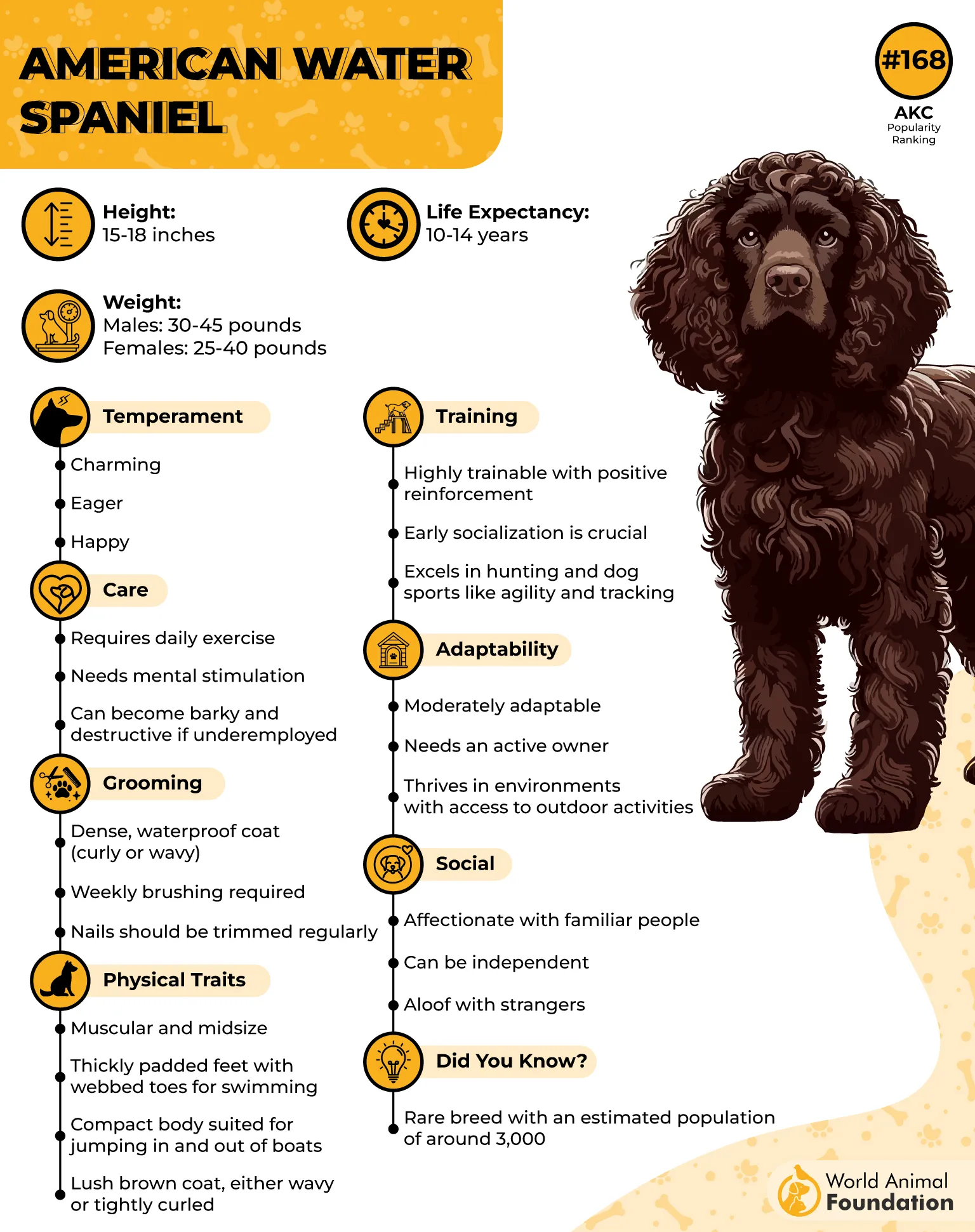
High energy? Absolutely. This isn’t a couch dog. If it’s not hunting, it needs mental and physical stimulation. Otherwise, it gets creative (not in a good way).
Health-wise, it’s generally sturdy, but keep an eye on hip issues and heart conditions. Regular exercise and a good diet help keep it in top shape.
Despite its hunting roots, it’s a great family pet, affectionate and playful when not in the field. Just make sure it has a job to do.
Fun fact: The American Water Spaniel is Wisconsin’s state dog, proving once and for all that cheese and hunting go hand in hand.
9. Golden Retriever
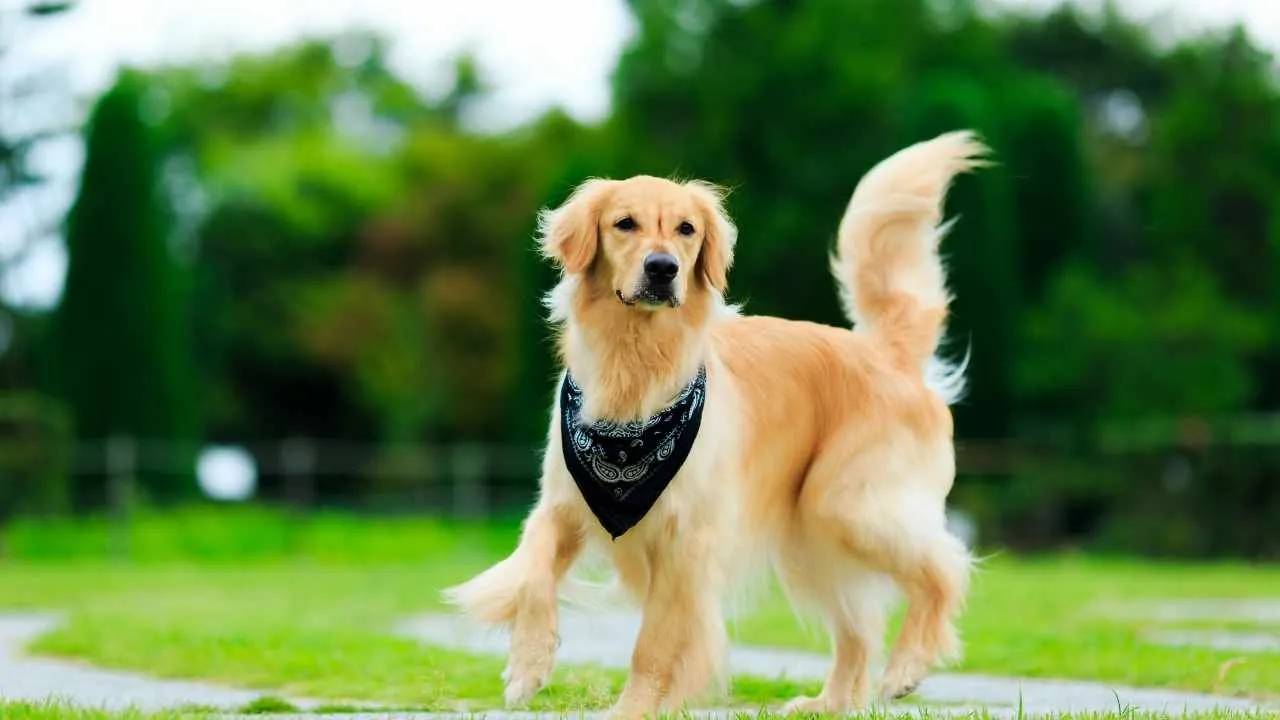
The Golden Retriever isn’t just a pretty face—it’s one of the best duck-hunting dogs around. With a soft mouth and a strong natural ability to retrieve, it’s a hunter’s dream.
Unlike some other retriever breeds, Goldens are quick learners and ridiculously obedient. Training them is almost too easy—they pick up hand signals like they’re reading your mind.
Their thick double coat keeps them warm in the water, making them great for retrieving ducks in colder conditions. Bonus: They also shed enough fur to build a second dog.

Energy? Off the charts. This sporting breed thrives on activity, whether it’s hunting ducks, playing fetch, or just zooming around for no reason.
Health-wise, they’re prone to hip issues and cancer, so regular check-ups are a must. Keep them fit, and they’ll keep hunting for years.
Beyond the hunt, they’re excellent companions—friendly, affectionate, and great with kids. It’s no wonder they’re one of the most popular breeds in the world.
Fun fact: Goldens were originally bred in Scotland to retrieve downed birds from both land and water. Today, they retrieve everything—including your socks.
Conclusion
Choosing the best duck dog isn’t just about looks—it’s about stamina, intelligence, and a strong desire to hunt waterfowl. Whether you need a retriever breed, a gun dog, or a do-it-all hunting partner, there’s a perfect match for every hunter.
From the tireless Labrador Retriever to the German Wirehaired Pointer, these breeds bring their A-game. But don’t overlook other dogs like the Boykin Spaniel, a South Carolina favorite, or the Springer Spaniel, an expert in flushing ruffed grouse and waterfowl.
Need something unique? The Irish Water Spaniel is a curly-haired powerhouse, while the Irish Setter isn’t just a showstopper—it’s a skilled hunter with an excellent nose. The American Kennel Club recognizes these breeds for a reason.
No matter which dog you choose, training, exercise, and bonding make all the difference. Even the best duck-hunting dogs need a great handler.
So, which breed fits your hunting style? Let us know your top pick and get ready to bring home more birds this season!


